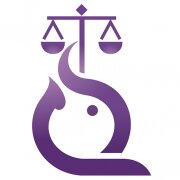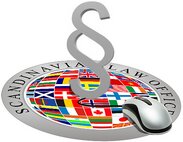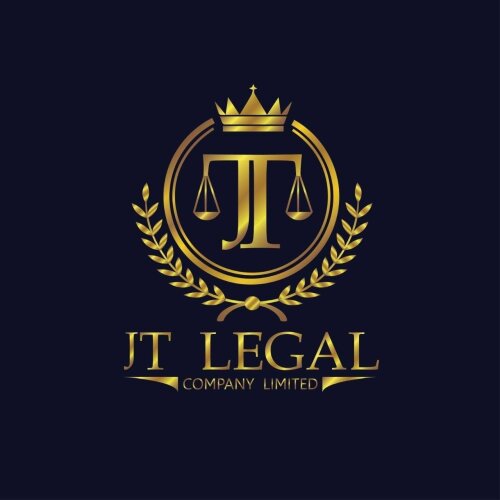About Water Law in Thailand
Water Law in Thailand refers to the body of legislation, regulations, and customary practices governing the management, use, allocation, and conservation of water resources within the country. The Thai government has increasingly recognized the importance of water as a critical resource for domestic, agricultural, and industrial use, as well as for ecosystem sustainability. Recent reforms, including the Water Resources Act B.E. 2561 (2018), aim to modernize water management, prioritize public interest, and address challenges such as water scarcity, pollution, and allocation disputes.
Why You May Need a Lawyer
There are several situations where legal assistance is important in the field of Water Law in Thailand. Common scenarios include:
- Securing water usage rights or permits for irrigation, industrial activities, or community needs
- Navigating disputes involving shared water sources, such as rivers, lakes, or groundwater
- Responding to regulatory actions or penalties for unauthorized or excessive water use
- Assessing land development projects for compliance with water management and conservation rules
- Litigating cases involving water pollution, damage to water resources, or conflicting water rights
- Understanding obligations under recent reforms, especially as a business or property developer
A knowledgeable lawyer can help interpret complex regulations, prepare the necessary documentation, represent you before relevant authorities or courts, and advise on dispute resolution pathways specific to Water Law in Thailand.
Local Laws Overview
Key aspects of Water Law in Thailand include:
-
Public Ownership of Water Resources: Under the Water Resources Act, most water sources are considered national assets managed in the public interest. Individuals and organizations must obtain permission for substantial use.
-
Permit System: Water extraction beyond household or small-scale use typically requires permits, especially for agricultural, industrial, or commercial activities. The type and volume of water, as well as seasonal and regional considerations, affect the permit process.
-
Prioritization of Use: The law establishes priority for essential use, including household consumption, before irrigation, industry, or recreational needs. During shortages, authorities can restrict or redistribute usage.
-
Protection Against Pollution: Laws strictly prohibit discharge of pollutants into natural water sources. Offenders face fines, restoration orders, or even criminal penalties.
-
Water User Organizations: The Act encourages the formation of local Water User Organizations to promote shared management and address minor disputes without litigation.
-
Dispute Resolution: Disputes over water rights or damages go through mediation, administrative review, and, if unresolved, can proceed to court.
-
International Waters: Thailand participates in bi-national or regional frameworks to manage transboundary waters, especially in the Mekong basin.
Frequently Asked Questions
What is the Water Resources Act B.E. 2561 (2018)?
It is the primary modern statute regulating water resource management in Thailand, focusing on sustainable use, fair allocation, and strong penalties for misuse or pollution.
Do I need a permit to use water from a river or groundwater source?
Yes, for uses beyond basic household needs, a permit from the relevant Water Resources Office is usually required, particularly for agricultural, industrial, or large-scale uses.
Can I be fined for polluting a water source?
Absolutely. Discharging waste or pollutants into public water bodies can result in stiff fines, mandatory clean-up, and even criminal charges, depending on the severity and intent.
What happens in a drought or water shortage?
Authorities may prioritize or restrict usage for different groups, focusing on essential needs such as drinking water and public health, and temporarily limiting discretionary or commercial uses.
How are water rights determined for agricultural land?
Water rights for agriculture are usually governed by permits and local usage plans. In established irrigated zones, priorities and allocations are managed by local committees or Water User Organizations.
Are there special protections for traditional or community water uses?
The law recognizes some customary rights, especially in rural communities, but these are subject to overriding public interest and the need to balance competing demands.
How are disputes over water resolved?
Most minor disputes are resolved through mediation within Water User Organizations or administrative agencies. If unresolved, matters can escalate to the administrative courts.
Can foreign individuals or companies use Thai water resources?
Yes, but they must comply with the same permitting requirements as local entities. Some restrictions or additional scrutiny may apply depending on the intended use and location.
Who monitors water quality and use?
The Department of Water Resources, Ministry of Natural Resources and Environment, and local authorities monitor water quality and usage compliance. They have authority to inspect, test, and enforce regulations.
Is rainwater collection regulated?
Generally, rainwater collection for private use is not regulated. However, large-scale systems affecting public drainage or water management may require permits or compliance with local ordinances.
Additional Resources
If you need further information or assistance, the following organizations and governmental agencies can be valuable points of contact:
- Department of Water Resources (Ministry of Natural Resources and Environment)
- Royal Irrigation Department
- Provincial Waterworks Authority
- Office of Natural Resources and Environmental Policy and Planning
- Water Resource Regional Offices
- Local administrative offices and Water User Organizations
- Thai Lawyers Council or regional bar associations for lawyer referrals
Next Steps
If you require legal assistance regarding Water Law in Thailand, follow these steps:
- Determine the specific issue you are facing, such as needing a permit, resolving a dispute, or responding to regulatory actions.
- Gather relevant documents, such as land title deeds, existing permits, correspondence, and any notices received from authorities.
- Contact a lawyer experienced in environmental or administrative law in Thailand. Look for professionals who have dealt with similar water-related matters.
- Consider reaching out to local Water User Organizations or relevant government offices for basic information or mediation services.
- If necessary, your lawyer can help file the appropriate applications, lodge appeals, or represent you in administrative or judicial proceedings.
- Stay informed about changes in Water Law, as rules and procedures may evolve with policy updates and new legal interpretations.
Taking these steps will help protect your rights and ensure compliance with Thailand’s Water Law framework.
Lawzana helps you find the best lawyers and law firms in Thailand through a curated and pre-screened list of qualified legal professionals. Our platform offers rankings and detailed profiles of attorneys and law firms, allowing you to compare based on practice areas, including Water Law, experience, and client feedback.
Each profile includes a description of the firm's areas of practice, client reviews, team members and partners, year of establishment, spoken languages, office locations, contact information, social media presence, and any published articles or resources. Most firms on our platform speak English and are experienced in both local and international legal matters.
Get a quote from top-rated law firms in Thailand — quickly, securely, and without unnecessary hassle.
Disclaimer:
The information provided on this page is for general informational purposes only and does not constitute legal advice. While we strive to ensure the accuracy and relevance of the content, legal information may change over time, and interpretations of the law can vary. You should always consult with a qualified legal professional for advice specific to your situation.
We disclaim all liability for actions taken or not taken based on the content of this page. If you believe any information is incorrect or outdated, please contact us, and we will review and update it where appropriate.

















